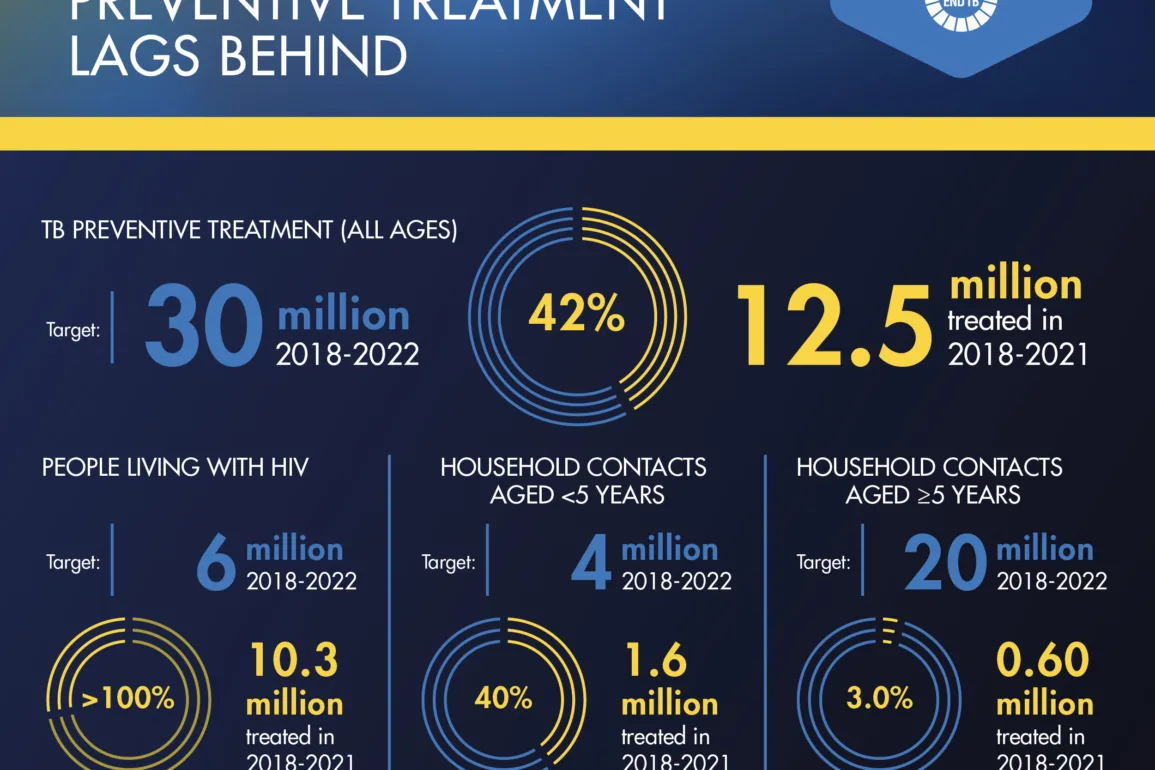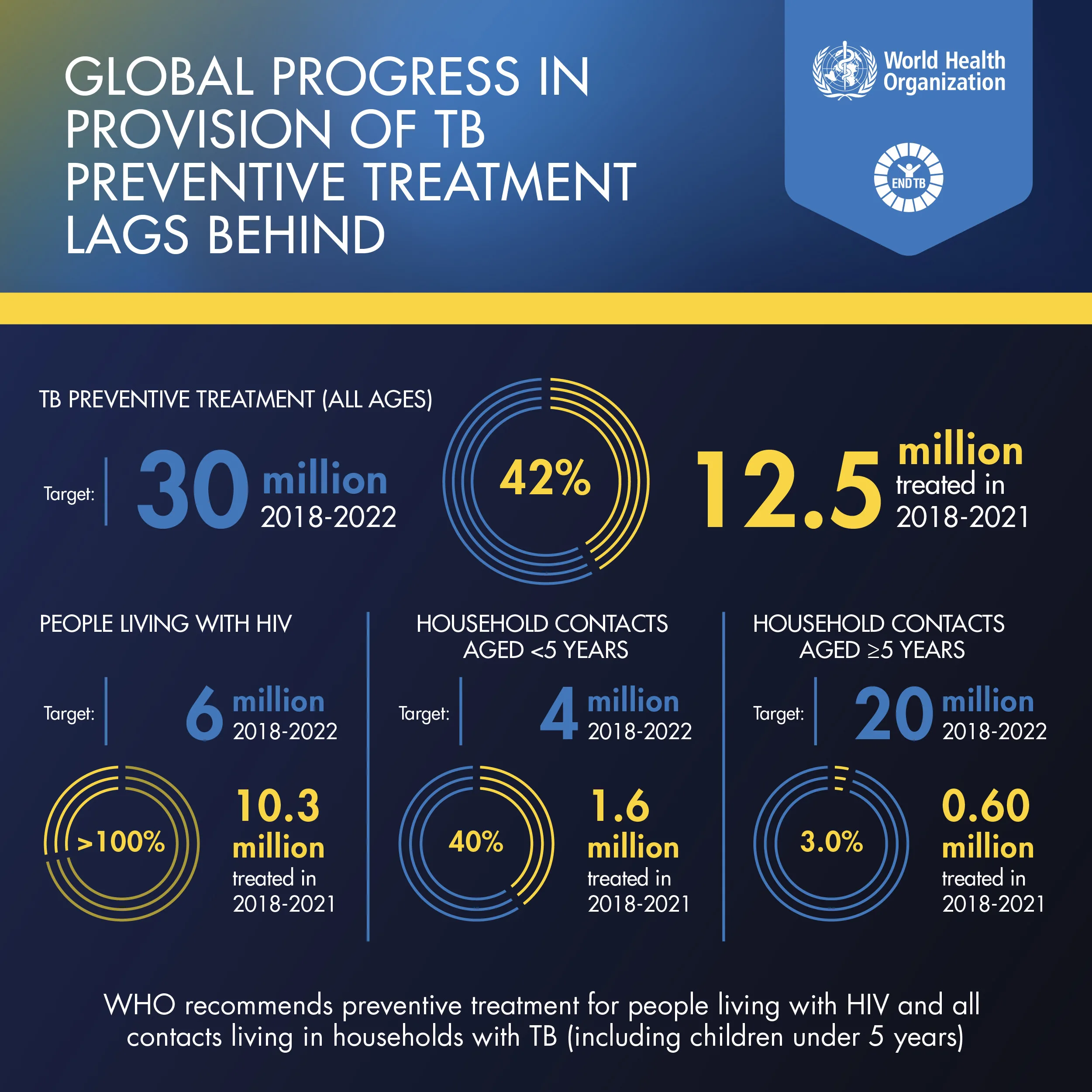- This global round-up brings you health stories from the past fortnight.
- Top health news: New targets agreed to stamp out tuberculosis by 2030; What we know so far about the Nipah virus outbreak; Spain’s Catalonia region to provide free period products.
1. Ambitious targets to eradicate TB by 2030 agreed
Licensing at least one new vaccine in the next five years is one of a new set of challenging targets aimed at tackling tuberculosis (TB) agreed at a United Nations meeting.
Stamping out TB by 2030 is one of the agreed Sustainable Development Goals, but as we reach the halfway point in achieving them, faster progress is needed.
A declaration agreed by stakeholders also includes a commitment to reach 90% of people with TB prevention and care services, and to provide social benefit packages to those that have the disease.
TB is the second biggest infectious disease killer worldwide, after COVID-19, and the only vaccine against it is over 100 years old.
Read more about what the World Economic Forum is doing to end TB here.
2. Nipah virus outbreak infects six in Kerala
There have been six cases of Nipah virus detected in the southern Indian state of Kerala, with two deaths. The bat-borne virus emerged in late August and is one of a number of outbreaks the region has suffered in the past five years.
More than 700 people have been tested for infection and some schools, offices and public transport have been closed. The virus can cause fever, vomiting, respiratory issues and brain inflammation, leading to death in some cases.
The disease was first detected in Malaysia over 20 years ago, with outbreaks also seen in Singapore and Bangaldesh.
The World Economic Forum’s Centre for Health and Healthcare works with governments and businesses to identify and amplify solutions for building resilient, efficient, and equitable healthcare systems. Here are some examples of the impact delivered by the centre:
Global vaccine delivery: The Forum actively supports global vaccine delivery efforts, and its contributions to COVAX have resulted in the delivery of over 1 billion COVID-19 vaccines. The Forum also played a pivotal role in launching Gavi, the Vaccine Alliance, which has helped save more than 13 million lives over the past 20 years.
Davos Alzheimer’s Collaborative: Through this collaborative initiative, the Forum is actively working to accelerate progress in the discovery, testing, and delivery of interventions for Alzheimer’s disease.
Mental health policy toolkit: In collaboration with Deloitte, the Forum has developed a comprehensive toolkit to assist lawmakers in crafting effective policies related to technology for mental health.
COVID Action Platform: In the midst of the pandemic, the Forum, in partnership with various organizations, launched more than 40 initiatives worldwide to navigate the challenges posed by COVID-19.
Global Coalition for Value in Healthcare: The Forum’s coalition is fostering a sustainable and equitable healthcare industry. It has launched innovative value-based healthcare hubs to address ineffective spending on global health.
UHC2030 Private Sector Constituency: Hosted by the Forum, the constituency plays a crucial role in advocating for universal health coverage and emphasizing the private sector’s potential to contribute to achieving this ambitious goal.
To get involved or to learn about other initiatives undertaken by the World Economic Forum, please contact us.
3. News in brief: More health stories from around the world
Pharmacies in Catalonia, Spain, will provide reusable menstrual cups, period pants and pads for free in an effort to overcome period poverty. The region becomes one of the first in the world to adopt such an initiative, alongside Scotland. The regional government said the move would benefit around 2.5 million girls, women and people who identify as non-binary or transgender who have periods.
The United Nations (UN) has raised the alarm over the number of child deaths in Sudan as the crisis in the country deepens. More than 1,200 children are suspected to have died of measles and malnutrition in refugee camps. Many thousands of newborns will die, the body has warned, while 3.4 million children under five are acutely malnourished. Violence in the region has led to 11 million people in urgent need of healthcare, according to the World Health Organization. The UN’s 2023 Sudan Humanitarian Response Plan launched in May is only 30% funded.
World leaders have committed to greater collaboration, governance, and investment to help efforts in preventing and preparing for the next pandemic. The commitment made at the UN’s General Assembly calls on Member States to conclude negotiations on the Pandemic Accord – a formal pandemic prevention, preparedness and response plan – and make targeted amendments to International Health Regulations by May next year.
The US government has awarded $45 million in grants to help clinics treating long COVID, with the aim of expanding access and developing new models of care. The country has also restarted its delivery of free COVID-19 tests to households. Meanwhile, the Australian government is to launch a national inquiry into the handling of the pandemic with a view to being better prepared for future health crises.
The Royal Society, which represents the UK’s leading scientists, has launched a grant aimed at boosting the number of black scientists. Five scientists will get up to £690,000 spread over four years, which the body hopes will increase the low numbers of black scientists, particularly in research. If successful, the pilot may be expanded to other under-represented groups.
4. More on health from Agenda
The exclusion of women and girls’ perspectives in health programmes and products is particularly problematic when it comes to family planning. Emergency departments may offer a platform to address the gaps that persist and to improve reproductive care.
As the planet’s health worsens, so does ours. But that link can be broken through international cooperation and community-based initiatives. Experts explored this issue at a session during the World Economic Forum’s Sustainable Development Impact Meetings.
The prevalence of obesity-related conditions is rising. Alongside this, the food system must find new ways to provide affordable, sustainable food. The Forum has identified five levers that will help create a healthy, sustainable food system, including reformulating ultra-processed foods and promoting diverse, nutrient-rich foods.
Patients operated on by women have less chance of problems emerging after surgery than if they are operated on by men, studies show. Records from a million patients show that patients of female surgeons are less likely to die or need readmitting following a complication. Male surgeons strongly outnumber women surgeons.



